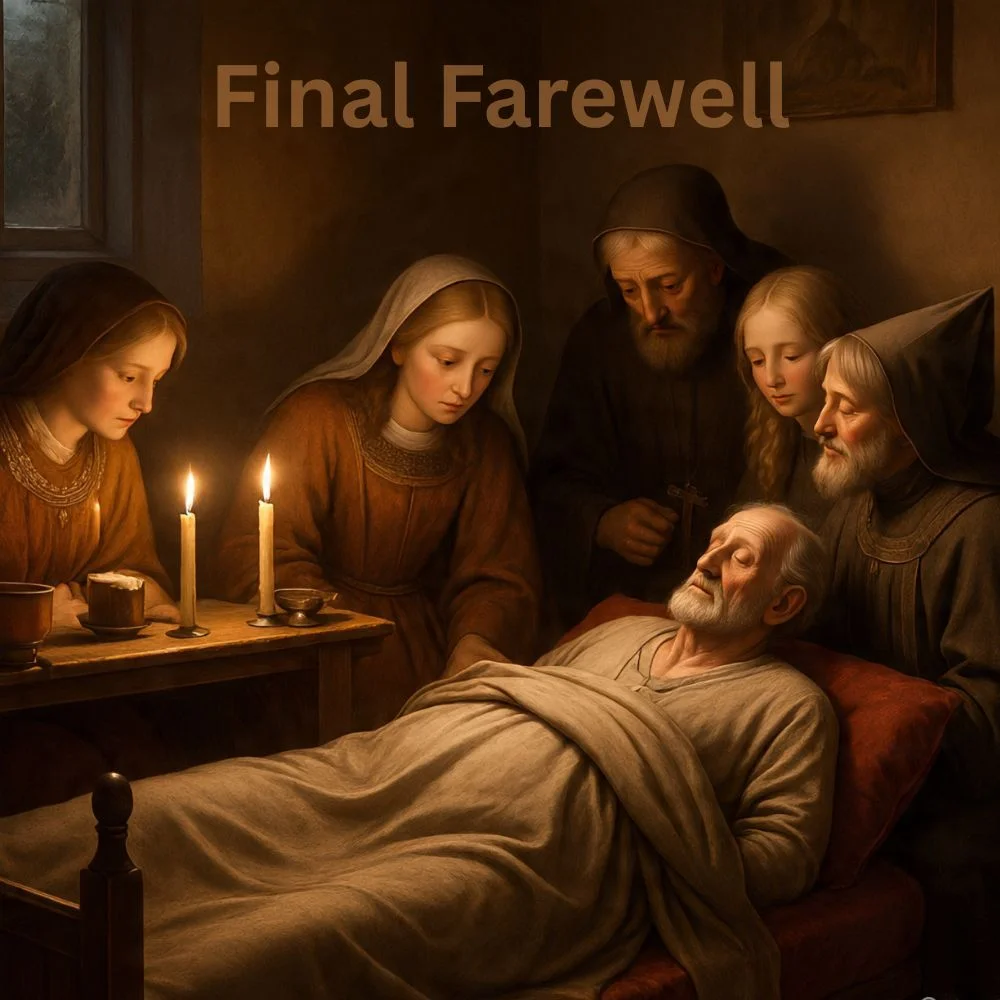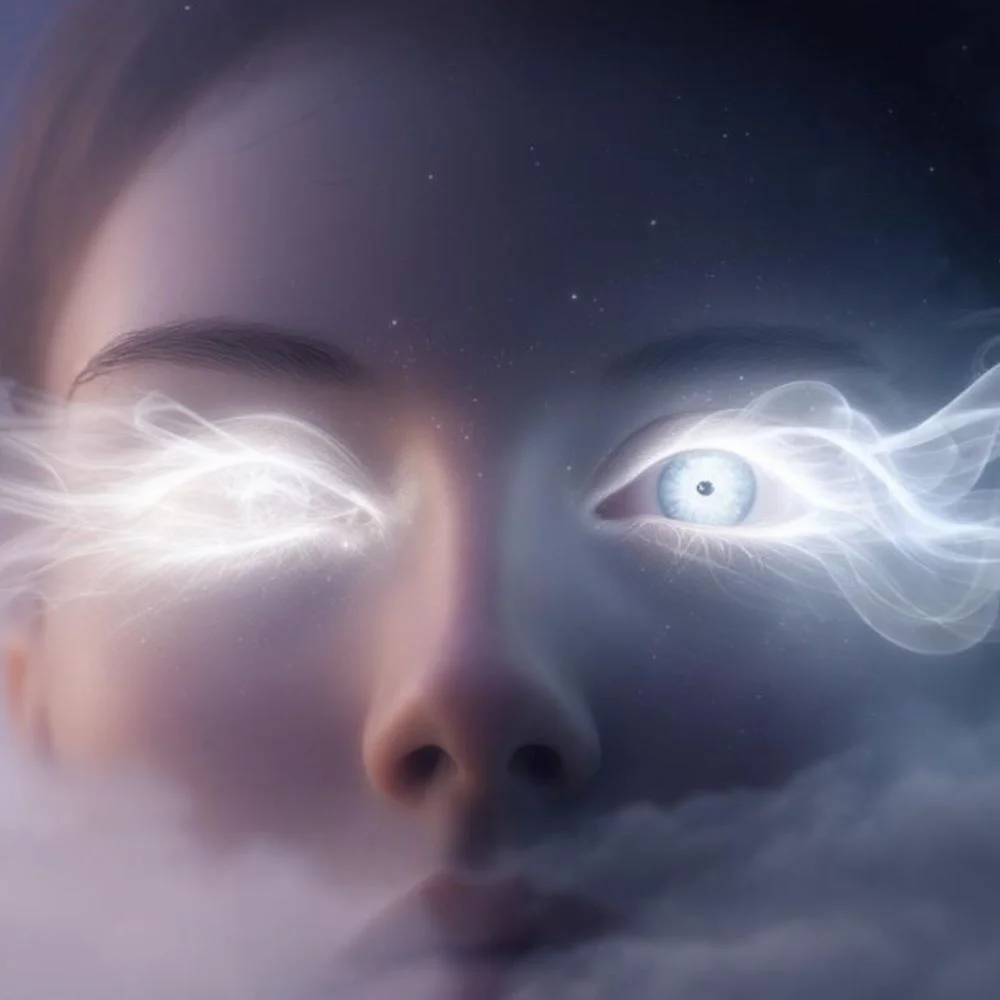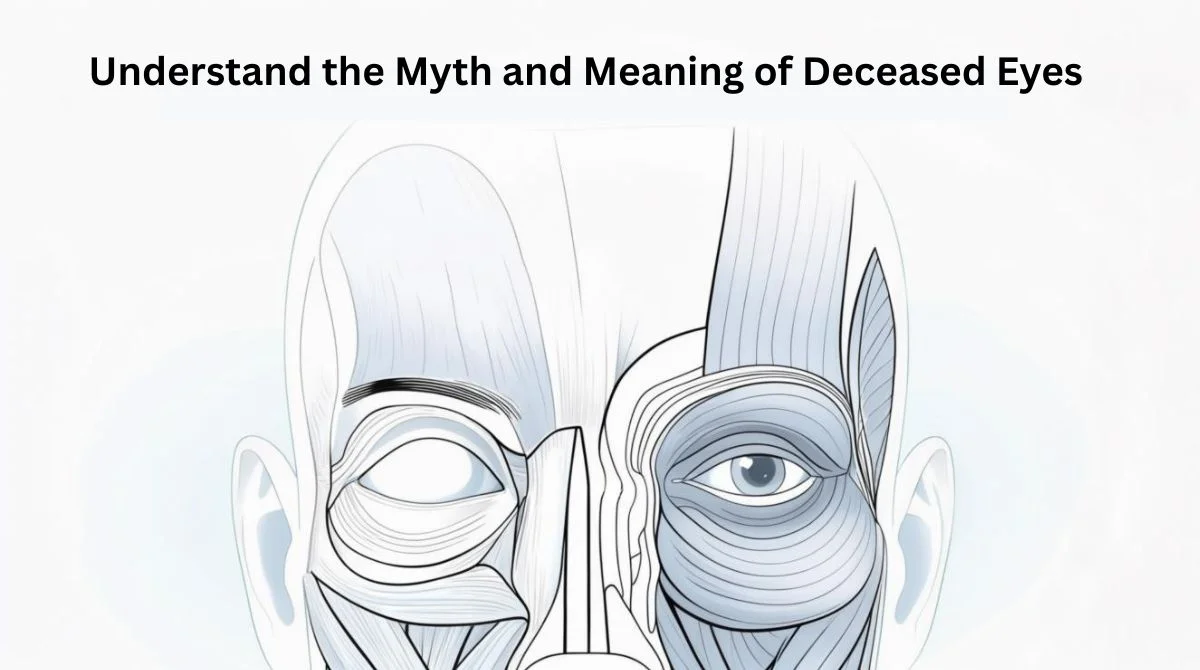Seeing someone pass away with their eyes open can feel eerie or unsettling. But what does this really mean? In this article, you’ll learn about Deceased Eyes what people believe, what cultures think, and what science says using simple words and easy explanations.
What Does “Deceased Eyes” Mean?
When someone dies with their eyes open or partially open, many people call these “deceased eyes.” It often sparks questions: Is it a sign of something deeper? Did they see their death coming? Is there spiritual meaning? Or is it just a physical thing?
Medical Reasons for Eyes Open at Death.
1. Muscle Relaxation
When a person passes away, the muscles throughout the body, including those that manage the eyelids, lose their tension and naturally relax.
2. Reduced Tear Production
When tears stop being produced, the cornea (the outer eye surface) dries out. That can leave the eyes looking glazed and permanently open.
3. Facial Features Freeze
Similar to other muscles in the body, the facial muscles may either tighten or loosen after death, causing the eyes to remain in the position they were last in. In short: deceased eyes are almost always due to natural muscle and tear film changes, not spiritual visions.
Myths, Beliefs & Stories
1. Spiritual or Supernatural Beliefs
- Witnessing death: Some believe open eyes mean the person saw or felt death coming. But medical evidence shows awareness fades before this happens.
- Trapped soul: There’s a tale that an open eye means a spirit is stuck in the body but there’s no scientific proof.
- Last fear or shock: Open eyes don’t show emotion. They are a result of physical rest, not trauma.
2. Cultural Rituals & Symbols
- Greek coins on eyes: A tradition (though not universal) where coins were placed on closed eyes to pay Charon the ferryman in afterlife tales.
- Eye symbols in Egypt: Egyptians painted protective eyes (like the Eye of Horus) on coffins and walls to guide and watch over the deceased.
- Opening mouth ceremony: Priests in ancient Egypt touched the eyes and mouth of mummies in rituals to help souls see and speak in the afterlife.

What Different Cultures Think?
1. Hinduism
There is no special worry about eyes being open in Hindu rites. Focus remains on proper rituals, not the eyes’ state.
2. Islam
Open eyes aren’t deeply significant. Closing them gently is seen as respectful, but it doesn’t affect funeral rites.
3. Ancient Greece & Egypt
These cultures mixed science with myth. Egyptians used eye symbols for protection, while Greeks sometimes placed coins on the eyes but largely, rituals were about guiding souls forward.
Modern Views & Medical Insight
1. Hospice & End-of-Life Care
Caregivers often note open eyes in dying patients. It’s seen as a natural final stage. Families are gently guided to close eyes if they feel comforted.
2. Corneal Donation
Sometimes eyes are kept open for medical reasons, like cornea donation. Timely funeral homework ensures tissues are preserved.
Why It Matters to You?
1. Ease Anxiety
If a person’s eyes remain open after death, understand that it’s a natural and common occurrence. It’s a muscle-once-loose fact, not a sign of bad luck or spiritual unrest.
2. Connect with Culture
Understanding rituals like coins on eyes or symbolic eye images helps connect with past beliefs and funeral traditions.
3. Support Grieving
Closing eyes of the deceased can help loved ones find closure. It’s a gentle, respectful act rooted in both tradition and empathy.
4. Encourage Conversations
Talking about deceased eyes can help families discuss death more openly breaking taboos and making loss a shared experience.
Myths vs Medical
- A common myth says open eyes indicate the person was shocked at the moment of death or saw death coming. However, science shows that awareness often fades minutes or even hours before actual death, especially in unconscious or terminal patients.
- Some spiritual beliefs claim that if the eyes remain open, the soul is still inside the body or struggling to leave. Medically, there’s no evidence for this. It’s simply the result of the eyelid muscles relaxing and no longer functioning after the heart stops.
- In ancient traditions, like those in Egypt or Greece, people used symbols like coins, amulets or painted eyes to guide or protect the soul. These rituals were meaningful but are not proof of supernatural causes for open eyes.
- In movies or stories, wide-open eyes at death are often dramatized to show fear or horror. In real life, the muscles in the face, including those around the eyes, either go limp or lock in place depending on how the body reacts after death.
- From a medical perspective, deceased eyes are simply a part of the body’s natural shutdown process. The eyelids may not close on their own and unless someone physically closes them, they may remain partially or fully open.
Overall, while myths can bring comfort, create meaning or reflect cultural history, the medical explanation of deceased eyes is grounded in biology and should help reduce fear or confusion during a difficult time.

Science behind deceased eyes
- After death, the body enters a state where all muscles relax, including the eyelid muscles, which often leads to the eyes staying open.
- The brain stops sending signals, so there’s no control over eyelid movement anymore.
- Lack of blinking causes the eyes to dry out, giving them a glazed or fixed appearance.
- The position of the eyes at the moment of death often remains unchanged due to the absence of muscle tone.
- As the body cools (a process called algor mortis), tissues begin to stiffen in some cases (rigor mortis), locking the eyelids in whatever state they were in.
- This is a purely biological response, not a sign of emotion, fear, or any spiritual message.
- Medical professionals often assist families by gently closing the eyes as a part of respectful post-death care.
Frequently Asked Questions
1. Q: Do open eyes at death mean fear or pain?
No, it’s muscle relaxation not emotion.
2. Q: Should I close the eyes of someone who died?
Many find it comforting. Saddle eyelids gently if desired.
3. Q: Are there health concerns with open eyes on corpses?
No harm but drying may damage corneas especially if donation is planned.
4. Q: Do all cultures cover or decorate deceased eyes?
Not all. Practices vary widely from coins to painted symbols to gestures of respect.
Conclusion
Deceased Eyes are a natural thing not a signal of burdened souls, dying visions or hidden meanings. Most often, they’re caused by the body’s final moments. But they’ve sparked myths and rituals across time from Egyptian amulets to Greek coins, Hindu and Islamic beliefs. Knowing the truth can comfort you, ease grief and honor cultural traditions. If you see open eyes, you’ll now understand it’s simple biology and an opportunity for gentle care.



